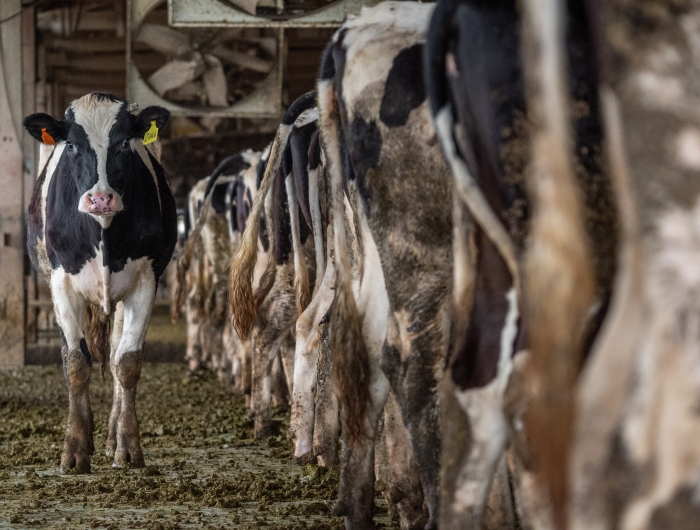Congress is taking action to allow for better understanding of dangerous foodborne microbes on farms

Jo-Anne McArthur - unsplash.com.
Statement of CSPI Director of Regulatory Affairs Sarah Sorscher
This week, Senator Cory Booker (D-NJ) re-introduced the Expanded Food Safety Investigation Act (EFSIA), a bill that allows federal investigators to enter concentrated animal feeding operations (CAFOs) to test for harmful bacteria and other microbes that can cause foodborne illness.
Animal farms can be major sources of foodborne illness. For instance, over 55 percent of foodborne Salmonella illnesses come from animals.
Currently, however, when investigators from the Food and Drug Administration or Centers for Disease Control and Prevention trace outbreaks and other public health concerns back to animal farms, the owners can refuse permission for investigators to enter the farm to sample for microbes. No other business that produces food can do this. The animal industry can and has taken advantage of this gap in food safety regulatory authority and thwarted investigators from sampling on farms during outbreaks.
The EFSIA was first introduced in 2019 after a nationwide outbreak of E. coli in romaine lettuce was tied to lettuce growing in close proximity to a large cattle-feeding operation in Yuma, Arizona. Federal investigators have also struggled to determine how new strains of Salmonella emerged and spread in animal farms during large outbreaks traced back to pork and chicken. The bill provides additional tools for investigators to gather information about future outbreaks that emerge from large animal farms.
By allowing federal officials to sample on farms and definitively track the source of outbreaks from CAFOs, this bill will expand our scientific knowledge of how microbes that cause illness spread from farms and allow both the industry and the government to take effective preventative action. It’s time to stop companies from slamming the barn door shut on public health investigations.
Representative Rosa DeLauro (D-CT) also re-introduced the bill in the House of Representatives this summer, showing that both chambers of Congress understand the importance of protecting the public from these microbial threats. An extensive list of organizations, including the Center for Science in the Public Interest, has come out in support of the legislation.
# # #

